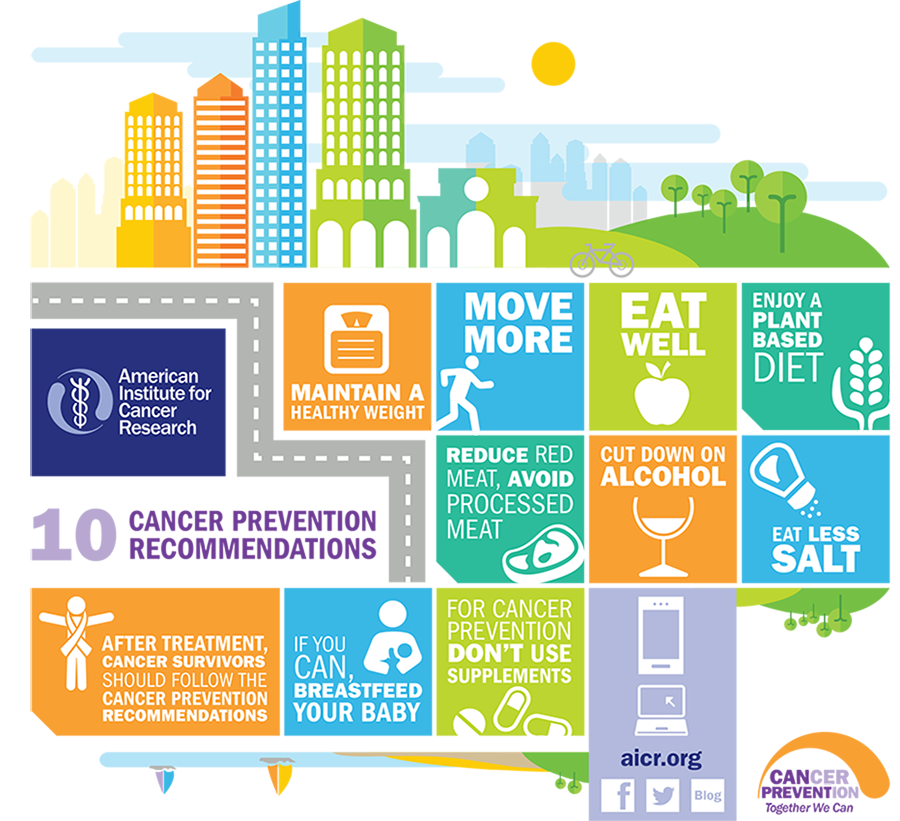Sugary sodas and other drinks lead to an estimated 184,000 deaths around the world each year, including over 6,000 from cancers alone, suggests a new analysis that quantified the effects of these drinks for the three leading causes of death.
While many health organizations — including AICR — recommend avoiding sugary drinks, this analysis highlights the powerful effect that cutting out one single part of the diet may have, independent of other healthy changes.
For cancer, AICR research has found that sugary drinks lead to weight gain and being overweight, which is linked to increased risk of ten cancers.
In this analysis, sugar sweetened beverages was defined as any beverage that contained at least 50 calories per serving. This included sugar-sweetened sodas, fruit drinks, sports/energy drinks, and homemade drinks: 100 percent fruit juice was excluded.
Researchers used data pooled from national dietary surveys across 51 countries to estimate sugary beverage consumption between 1980 and 2010. The surveys provided data on sugary beverage intake in countries representing 63% of the world’s adult population
Researchers then used data from other large studies and The Global Burden of Disease research to calculate the direct effect of sugary beverages on BMI and diabetes, along with the obesity-related effects on cardiovascular disease and cancers. In 2010, the analysis estimates that sugar-sweetened beverages may have been responsible for approximately:
- 133,000 deaths from diabetes
- 45,000 deaths from cardiovascular disease
- 6,450 deaths from cancer
The impact of sugar-sweetened beverages varied greatly between countries and ages, with three of every four sugary beverage-related deaths happening in the low- and middle-income countries.
Of the 20 most populous countries, Mexico had the highest death rate attributable to sugar-sweetened beverages with an estimated 405 deaths per million adults (24,000 total deaths). The U.S. ranked second with an estimated 125 deaths per million adults (25,000 total deaths).
Overall, in younger adults, the percent of chronic disease attributed to sugar-sweetened beverages was higher than the percent in older adults.
If you’re looking to cut down on those sugary drinks, we have substitute ideas. Try ways to spice up your water and here’s a few tea-based beverages.
And here’s all of AICR’s 10 Recommendations for Cancer Prevention:






